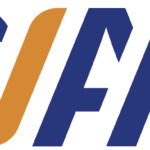The Institutes’ work with insurers in the blockchain space has led to a debut product – a tool designed to establish proof of auto insurance. Nationwide is the first carrier to bring it to production and is already in testing mode.
Dubbed the RiskBlock Alliance, the industry-led consortium has named its first product RiskBlock, which they tout as a blockchain framework designed specifically for the risk management and insurance industry. Plans call for Nationwide to test RiskBlock with a small group of internal customers, with an eye on expanding it in the new year.
Blockchain refers to an ever-expanding list of records known as blocks that can be updated, and the records include updates plus originals. They’re linked and secured (via cryptography and also public/private keys) and can be shared.
Once it is revved up, the RiskBlock proof-of-insurance tool is designed to help insurers, insureds and law enforcement simplify how they verify insurance coverage in real time, eliminating the need for paper insurance cards.
Christopher McDaniel, executive director of The Institutes RiskBlock Alliance, explained that using blockchain for auto insurance verification will ultimately make all kinds of transactions quicker, such as when a car owner/driver is in an accident.
“This moves us toward a much better insurance experience for drivers,” McDaniel told Carrier Management via email. “For instance, when you’re currently in an accident, the process through which you exchange insurance with the other party is cumbersome and unreliable. Instead, imagine if you could just tap your phones together or scan a QR code on each other’s phone, and confirm that you both have insurance. This type of blockchain [product] will make that possible, and this is a tangible step in that direction.”
McDaniel said that Nationwide is focused on using the RiskBlock tool to streamline operations for consumers, insurers and law enforcement.
“When consumers can get verification instantly through the blockchain, it reduces the amount of time and resources insurers need to field urgent requests from consumers for proof of insurance, not to mention the need to regularly mail out paper documents,” McDaniel said. “Furthermore, when enough carriers collaborate and adopt a standard [process], law enforcement will also be able to quickly and confidently verify drivers’ insurance through blockchain.”
Seth Flory, vice president of IT strategy and technology innovation at Nationwide, said in prepared remarks that the RiskBlock verification product should help all parties involved gain from its use.
The Institutes is an industry educational and research organization based in Malvern, Pa. It is overseeing blockchain working groups for 28 companies (brokers, insurers, reinsurers, third-party administrators) involved in developing four separate proofs of concept for blockchain and insurance.
There’s also the industry’s B3i initiative which focused this year on developing a blockchained reinsurance property excess of loss contract.
In October, B3i expanded with 23 new brokers and insurance/reinsurance members.
Source: The Institutes/ The Institutes RiskBlock Alliance
Topics Carriers
Was this article valuable?
Here are more articles you may enjoy.


 SIAA Announces Strategic Partnership With Progressive
SIAA Announces Strategic Partnership With Progressive  Consumer Acceptance of Telematics Widens, Says Survey
Consumer Acceptance of Telematics Widens, Says Survey  DoorDash, Uber Cost Drivers $550 Million in Tips, NYC Says
DoorDash, Uber Cost Drivers $550 Million in Tips, NYC Says  Adjusters Launch ‘CarFax for Insurance Claims’ to Vet Carriers’ Damage Estimates
Adjusters Launch ‘CarFax for Insurance Claims’ to Vet Carriers’ Damage Estimates 

